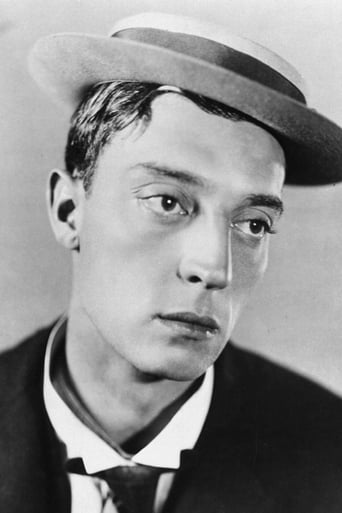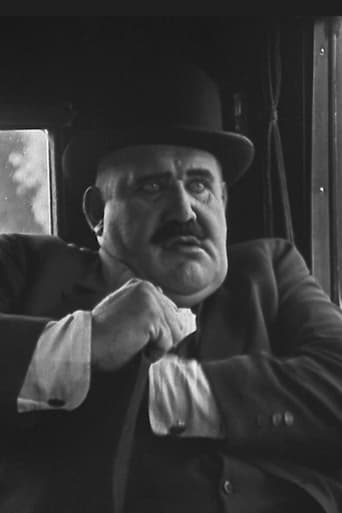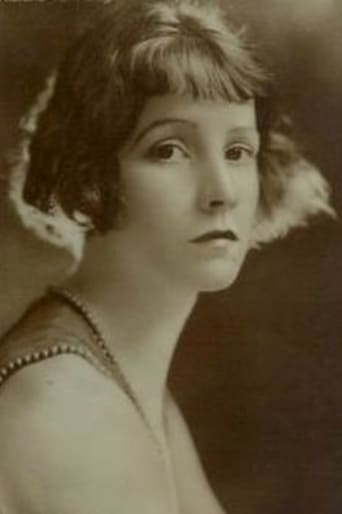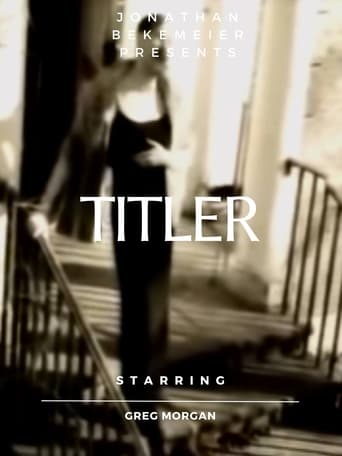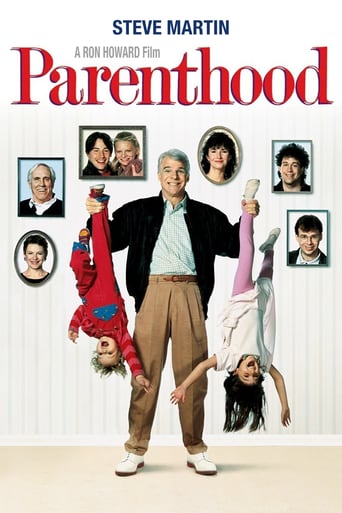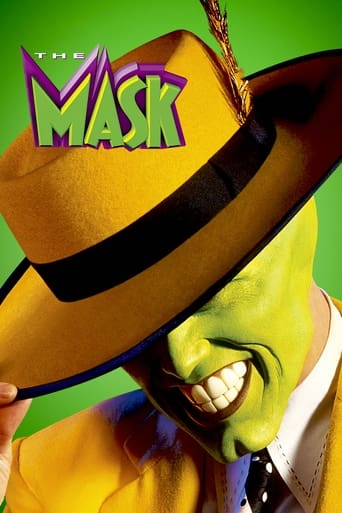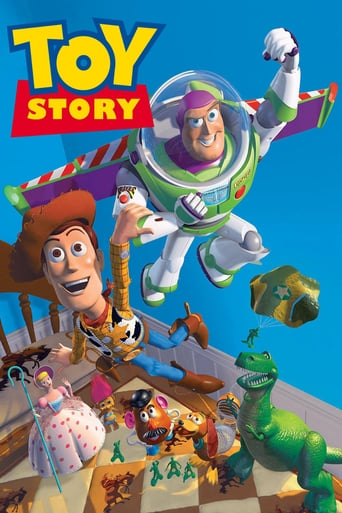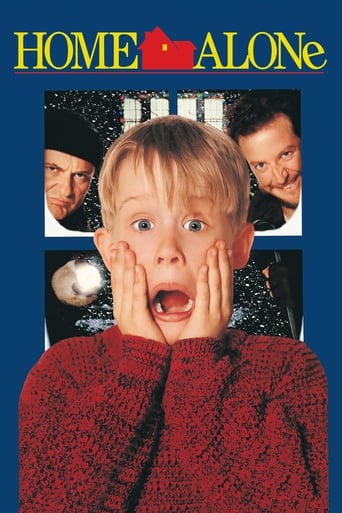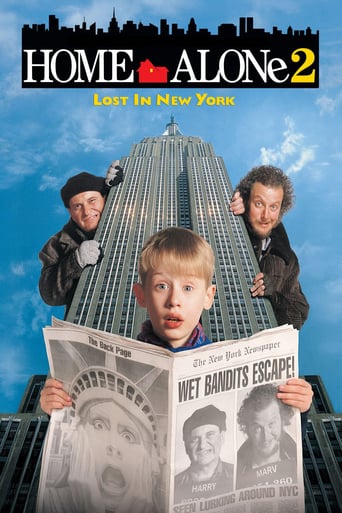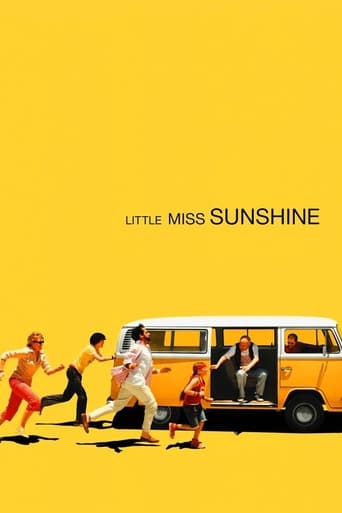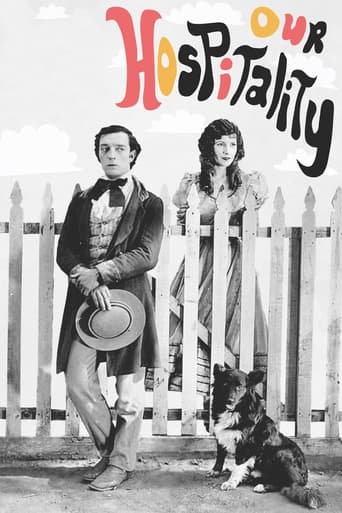
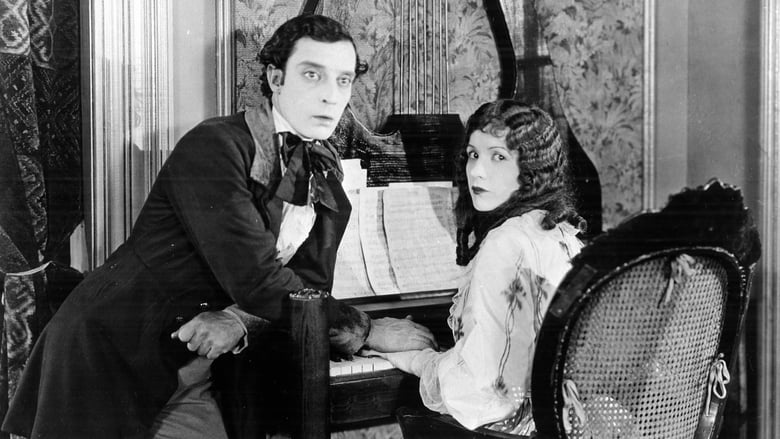
Our Hospitality (1923)
A young man falls for a young woman on his trip home; unbeknownst to him, her family has vowed to kill every member of his family.
Watch Trailer
Cast
Similar titles
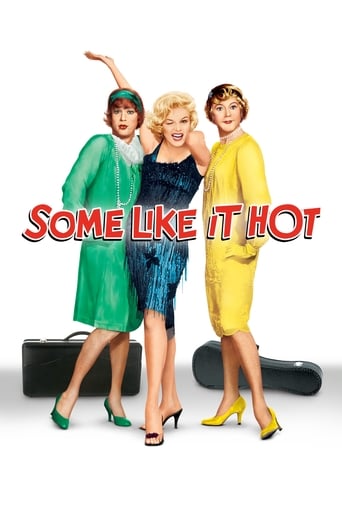
Reviews
Sorry, this movie sucks
Absolutely the worst movie.
It's an amazing and heartbreaking story.
All of these films share one commonality, that being a kind of emotional center that humanizes a cast of monsters.
Buster Keaton perfectly showcases his ability to twist genres in this all time comedy class, as he turns the premise of a Hitchcockian thriller into a riotous romp that is both clever and silly. Filled with some of Keaton's finest stunts, and some surprisingly intense (but also hilarious) climactic action/chase scenes, "Our Hospitality" is a simple and sweet joyride. It is a film made with love and care, as Keaton shows his passion for filmmaking with some of his breathtaking and memorable stunts. It takes real dedication to write, direct, and star in your own film-on top of doing dangerous stunts that depend entirely on timing. This is why Buster Keaton is one of my idols, he did some much hard work and still managed to make some damn great movies!
It's 1830 and things are looking great for young dandy Willie McKay. He has just learned he's inherited his father's estate down south and on the train ride there he's met a pretty girl who's invited him to have dinner with her family. Unfortunately, his inheritance isn't as grand as he imagined and his would-be girlfriend's family has been involved in a nasty feud with his for generations. They'd love nothing more than to rub him out, as he is the last surviving member of the McKays. Fortunately, whilst he is a guest at their home they must abide by the rules of southern hospitality and keep their guns away from him until he leaves... so Willie makes sure to find a way to become "a permanent guest".This is one of the most visually stunning silent comedies. The landscapes are captured beautifully. It's also interesting to note how differently this film handles historical details in comparison to the anachronistic Three Ages (1923). Everything is much more authentic, from Buster's silly-looking bicycle to the whimsical reproduction of the Stevenson's Rocket. It all foreshadows Keaton's attention to detail in his Civil War era masterpiece, The General (1926).Buster is wonderful as always with his underplayed style of comedy and subtle acting that still manages to feel modern. Big Joe Roberts makes his final appearance as the patriarch of the Canfield family. He's more than the typical heavy: while he does want Buster killed, his love for his daughter and weariness of the feud wins out. Natalie Talmadge is beautiful as the leading lady, though it is plain to see why she was never a big star like her sisters. She leaves little impression and seems nervous, though she does have great chemistry with Buster (as to be expected, since she was his wife at the time and their marriage was in its final moments of happiness before everything hit the fan).Our Hospitality (1923) is one of the best Keaton silents. In my personal ranking of his features, it's number four, after The General, Sherlock Jr (1924), and Steamboat Bill Jr (1928). It's charming, funny, and lovely to look at: what could be a better combination?
This Buster Keaton piece of excellence focuses on a family feud in which Buster is the unwitting son, targeted by the neighbours of his late father's land. He meets the neighbours' daughter (real-life wife Natalie Talmadge) and falls in love with her, not knowing who she is.There are some lovely pieces of humour in this film, mainly around a railway journey into the far reaches of town. There are also breathtaking stunts involving a waterfall, which still bring gasps and applause when seen in a cinema today.A superb film, funny, inventive, and boasting a great performance from the stone-faced Keaton. Perhaps not as lauded as The General or Steamboat Bill Jr., but certainly no slouch when compared to them.
After 'Three Ages (1923)' proved that he could direct a feature-length comedy {he had merely starred in 'The Saphead (1920)'}, Buster Keaton followed up its success with 'Our Hospitality (1923),' a film that set the mould for the type of films that he would continue to produce for the remainder of his time at United Artists. Keaton plays the polite and well-meaning dolt, incredibly naive to a point, but, when roused into action, he has all the determination, daring and agility of a circus performer. Natalie Talmadge, as the pretty and delicate Virginia Canfield, provides the necessary romantic subplot, just enough to please, without saturating the story's more exciting elements. The overwhelmingly-quirky comedy is rarely laugh-out-loud hilarious, but there's a certain quaintness and modesty to the material that really works, communicated most noticeably through Keaton's characteristically-underplayed slapstick performance. Silent comedians often compensated for the absence of sound by grossly exaggerating every expression and gesture; Keaton, on the other hand, reacts to each new obstacle with the solemnity of a monk, his inconceivable deadpan passiveness somehow amplifying the humour.It probably wouldn't be unreasonable to assume that 'Our Hospitality' was originally conceived to accommodate Keaton's passion for locomotives, and he was able to indulge in the construction of a working Stephenson's Rocket an early steam train with a 0-2-2 wheel arrangement. This petite little locomotive provides some of the film's most memorable comedic moments, most of the enjoyment derived from low-key, episodic sight gags, whether it be Buster trying to wear his top hat in the cramped carriage, the dog that is continually in pursuit, the back wheels that roll loose, the donkey blocking the tracks, or the tracks themselves, which determinedly follow the contours of the earth with precarious rigidity. Though this little train scarcely travels at a walking pace, some of the techniques that Keaton developed here would come in handy four years later, when he filmed his Civil War train epic, 'The General (1927).' The remainder of the film is a sharp comedy-of-manners, as the wealthy Canfield family plots to murder Keaton's Willie McKay, the culmination of a generations-long feud between the two warring lineages.Production took place from a screenplay by Clyde Bruckman, Jean C. Havez and Joseph A. Mitchell, and the writers aim a few good-natured digs at the American South. The family feud, which is continued throughout the decades despite the fact that nobody remembers how it began, sounds too ludicrous to be true, but I was surprised to learn of a firm grounding in fact the story was, indeed, based on the bloody real-life feud between the Hatfield and McCoy families. Paradoxically, the film also celebrates the indomitable "Southern hospitality" of the local folk, and the Canfield family (led by Keaton-regular Joe Roberts, in his final role) grudgingly agrees to only shoot their hapless enemy once he has left the cover of their home and so has ceased to be their guest. As one might expect, Buster Keaton risked his neck on more than a few occasions, the most unforgettable stunt involving his dangling precariously from a log perched at the crest of a waterfall, and his daring acrobatic rescue of the beautiful damsel-in-distress. Talmadge may have been replaced by a dummy, but Keaton was there, as always, in the flesh.
